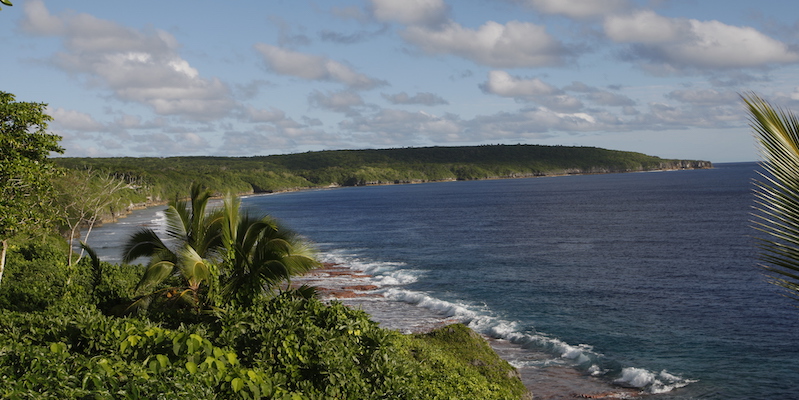
Niue can advance 23 hours
Niue Island – an island nation in the Pacific Ocean – is considering changing its time zone, moving forward 23 hours. The proposal was made by opposition parliamentarian Terry Kuo to facilitate travel and relations with New Zealand: the two countries are geographically close, and they have ongoing relationships but are separated by 23 hours of time zone, complicating the lives of tourists and workers who commute between the two countries. The two islands. Parliament rejected the proposal, but Prime Minister Dalton Tagillagi said in an interview with Britain’s Guardian newspaper guardian The government wants to “keep it alive” for the future: “We are working on that. The government is dealing with it and talking with airlines and other countries to understand what will change.”
Niue is located in the South Pacific Ocean between the islands of Tonga, Samoa and Cook. It has an area of about 260 square kilometers and a population of less than 2,000. Although independent, it is governed by a “free association” with New Zealand: internal political decisions are made independently, but New Zealand deals with island defense and foreign affairs. The country’s constitution, passed in 1974, also states that Niue residents also hold New Zealand citizenship.
Tropical forests, coral reefs and many types of fish are its greatest wealth and attract tourists who Come Most of them are from Australia and New Zealand. The economy is mainly based on tourism, but the island lives mainly thanks to Help from New Zealand. Due to the limited resources available, most Niue residents moved to New Zealand or went to work there and back. From Niue to Auckland, it takes about 3 and a half hours by plane, but depending on where you depart from, you find yourself 23 hours back or forth, which causes a lot of confusion for tourists, because on the flight it crosses the international history line.
Also read: Vanuatu islands resist selling passports
The International Date Line is an imaginary line located exactly opposite the Greenwich meridian (the meridian through which hours and time zones are calculated) and was introduced in 1884 by an international convention at the International Conference on Longitudes. Today is conventionally divided from tomorrow: if you crossed it eastward, you subtract a day, if you crossed west, you have to add it instead.
There is no formal treaty setting out the exact route of the line: it largely follows the 180 ° longitude that passes almost entirely in the middle of the Pacific Ocean. The few countries crossed by the date line are free to choose which date to follow unilaterally, thus changing the direction of the imaginary line. As he explained David Mumford Responsible for publishing the Collins Atlas, “The state decides for itself. Therefore, it is just a matter of publishing it and informing the international community and cartographers. ” Speaking of how to change the line, he said, “We are monitoring the proposed changes in the time zone. Once we decide, we update our atlases.”
A similar time zone problem also affected other islands in the region and included some financial and economic problems: for example, when it was in Samoa on Friday in Australia and in New Zealand, Saturday was already a public holiday. In 2011, the Prime Minister of Samoa Island, Twilaypa Saileile Maligoy, asserted that “more than 90 percent of Samoans live in New Zealand and Australia”, they decided to move the International Change Line to the east of their island, thus adapting the island’s Samoa time zone to the New Zealand time zone. The move, according to the prime minister, came without major problems. The same thing happened in Tokelau, which wanted to adapt to the time zone of countries that have the most trade relations with it, such as New Zealand, Australia and China, and to do so they skipped one day. To change the timezone, both islands lost a day.
Also read: It helps to write the word “SOS” on the beach
Dalton Tagilagi, who was elected in June 2020 as Prime Minister of Niue Island, said he supports the possibility of changing the time zone on his island, as long as he “weighs the benefits and the difficulties.” Terry Coe, the lawmaker who introduced the proposal, argues that keeping the time zone the same now makes work-life balance more complicated for those with relatives in New Zealand, and it doesn’t help with business hours. Although the Prime Minister supports this initiative, there is no agreement in the Parliament of Niue, so the island at the moment is not going to change its time zone.

“Organizer. Social media geek. General communicator. Bacon scholar. Proud pop culture trailblazer.”
